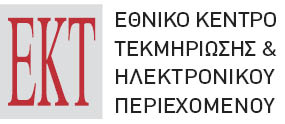Η παρούσα διδακτορική διατριβή συνιστά μια υλιστική-διαλεκτική αποτίμηση της πολιτικής φιλοσοφίας του Διαφωτισμού και κυρίως δύο κορυφαίων εκπροσώπων του, του Thomas Hobbes και του Jean-Jacques Rousseau. Βασικό αντικείμενο της διατριβής είναι να εξετάσει το ρόλο που παίζει η έννοια της αντίφασης, ως προϊόν της αυτό-ανταγωνιστικά οργανωμένης ανθρώπινης ιστορικο-κοινωνικής πρακτικής, στο πλαίσιο της προβληματικής περί κυριαρχίας. Από αυτή την άποψη, είναι πρωταρχικής σημασίας να αναδείξουμε το πώς η μελέτη μας μπορεί να φέρει στην επιφάνεια την επικαιρότητα της πολιτικής και κοινωνικής φιλοσοφίας των δύο στοχαστών, ιδίως πάνω σε ζητήματα όπως το δημοκρατικό έλλειμμα και οι τεράστιες κοινωνικές ανισότητες, όπως τις αντιλαμβανόμαστε καθημερινά γύρω μας. Σε αυτό το πλαίσιο, επιχειρήσαμε να φέρουμε στην επιφάνεια μια αντίφαση που ενώ υπάρχει στη φιλοσοφία του Hobbes και κυρίως στις σελίδες του Λεβιάθαν, εντούτοις έχει διαφύγει της προσοχής των μελετητών του, ακόμη και εκείνων που επιχείρησαν μια ριζοσπαστική ανάγνωση του έργου του. Αναφερόμαστε στη διάκριση μεταξύ in foro interno και in foro externo διάθεσης ως προς τις κανονιστικές αρχές θεμελίωσης μια πολιτικά οργανωμένης κοινωνίας. Αντίθετα προς τον Hobbes, ο Jean-Jacques Rousseau μολονότι αντιλαμβάνεται μια κεντρικότατη αντίφαση στους όρους γέννησης και αναπαραγωγής του κοινωνικο-πολιτικού φαινομένου, εντούτοις δεν την εντοπίζει στην κατηγορική διάκριση δύο διαφορετικών ειδών ανθρώπου, αλλά στον πυρήνα της κεντρικότερης κοινωνικής σχέσης, της ανθρώπινης κοινωνικά οργανωμένης εργασίας. Επεκτείνοντας αυτή την ανάλυση ακόμη παραπέρα, υποστηρίζουμε ότι η έννοια της γενικής βούλησης και άρα ολόκληρη η προβληματική περί κυριαρχίας δεν εξαντλούνται απλώς σε ένα επίπεδο λειτουργίας των κυρίαρχων κοινωνικο-πολιτικών θεσμών, αλλά άπτονται άμεσα της δημιουργίας ενός εξολοκλήρου ανακαινισμένου μοντέλου οργάνωσης του ανθρώπινου πολιτισμού.
This thesis constitutes a materialistic-dialectical re-evaluation of the political philosophy of the Enlightenment, and especially of two great figures, Thomas Hobbes and Jean-Jacques Rousseau. The main objective of the thesis is to examine the part that the notion of contradiction as a result of socio-historically determined human practice or labour plays in the context of the question of sovereignty. In this regard, it is of primary importance to show how this investigation can bring to the fore the contemporary relevance of the political and social philosophy of both these thinkers, especially on issues such as the democratic deficit and the vast social inequalities that in evidence around us. This particular aspect of their thought has tended to be disregarded by contemporary Hobbes and Rousseau scholars. In this regard, I aim to bring to the fore a contradiction that Hobbes underlines in the pages of Leviathan but which has not received serious analysis by his scholars. I refer to the contradiction between in foro interno and in foro externo disposal towards the terms of social construction. In contrast to Hobbes, Rousseau identifies the core contradiction as residing not in the existence of a categorical division between two different kinds of person, but at the heart of the most important social relation, human social labour, which penetrates the entirety of social reality and affects all men universally, without separation or distinction. Expanding this argument even further, I conclude that the essence of Rousseau’s pivotal concept of the general will consists not in a different way of organizing the political phenomenon and the operation of socio-political institutions, but in the active will of men to organize their daily lives on the basis of a completely different pattern of satisfying their true human needs. In this way, Rousseau's democratic programme acquires a materialistic content because at its very core is the call to organize a different model of human civilization.
 National Documentation Centre (EKT)
National Documentation Centre (EKT)




